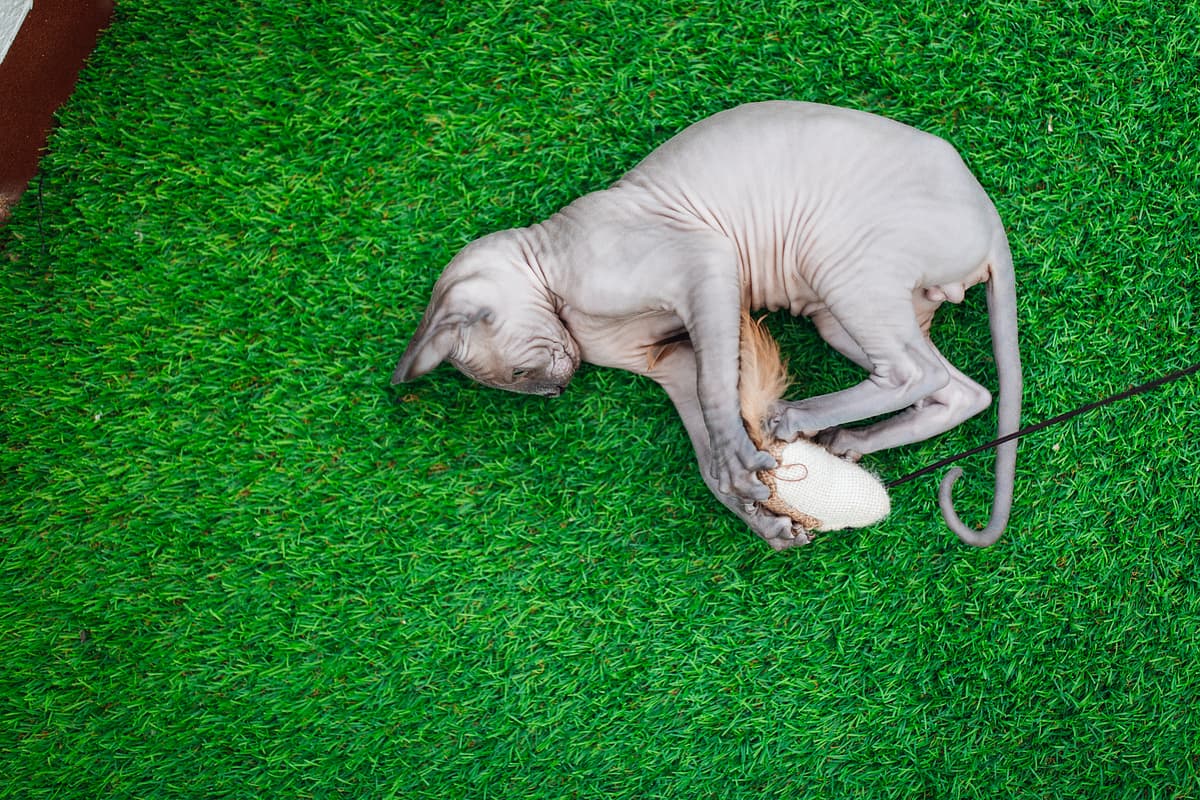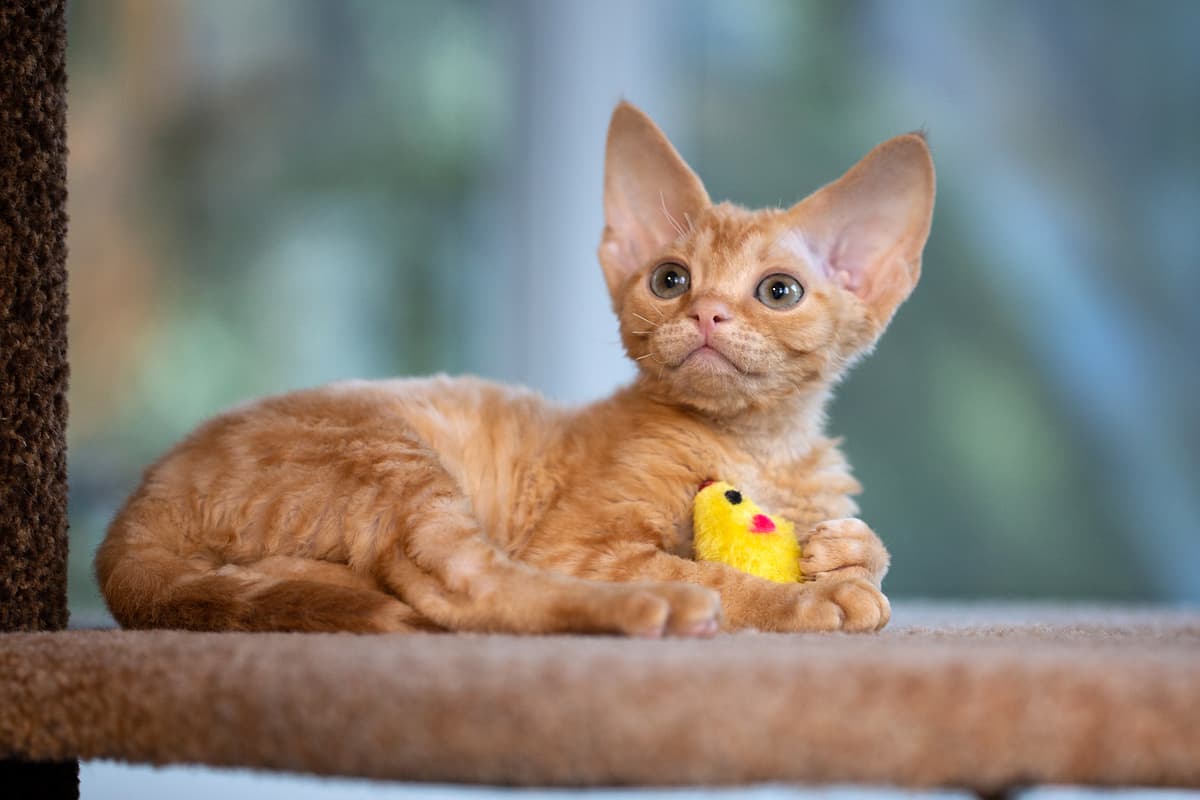Sphynx vs Devon Rex
Discover the differences between Sphynx and Devon Rex to make the best choice for your situation.
Try different breeds

Sphynx
Affectionate, playful, and outgoing, this hairless breed thrives on human attention and loves being the center of activity. Distinctive for its warm skin and social personality.

Devon Rex
Distinctive for its soft, wavy coat and oversized ears, this playful breed thrives on companionship and affection. Energetic and curious, it forms strong bonds with families.
Quick comparison
Medium
3.5–7 kg
Hairless, fine down
9–15 years
3–6 kg
High energy
Small
2.5–4 kg
Shorthaired, wavy
9–15 years
2–3.5 kg
High energy
Personality & behavior
Compare the personality traits and behavioral characteristics of both breeds.
Sphynx
Affectionate and enjoys close contact with people
Learns routines and interacts intelligently
Very active and often in motion
Loves interactive games and playful activities
Adjusts well to new environments and changes
Devon Rex
Enjoys being around people and other pets
Learns tricks and routines very quickly
Often active and always on the move
Loves interactive games and new toys
Adjusts well to changes and environments
Care needs
Exercise, grooming, and daily care requirements
Sphynx
Hypertrophic cardiomyopathy, skin infections
Devon Rex
Patellar luxation, hereditary myopathy
Suitability
How well each breed fits different living situations and families
Sphynx
Great choice
Affectionate and social, Sphynx cats are easy to handle for beginners.
Perfect fit
Sphynx cats adapt well to smaller spaces and enjoy indoor environments.
Very suitable
Their playful and energetic nature matches active lifestyles and busy households.
Good match
Gentle and tolerant, they usually get along well with respectful young children.
Friendly companion
Sphynx cats are generally sociable with other pets when properly introduced.
Not ideal
They dislike being left alone for extended periods and may develop separation anxiety.
Devon Rex
Highly suitable
Devon Rexes are affectionate and adaptable, making them easy for new owners to manage.
Perfect fit
They thrive in smaller spaces and remain playful and active indoors.
Great choice
Their energetic and social personality matches well with active households.
Very friendly
Generally gentle and tolerant, they enjoy interactive play with considerate children.
Good companions
They usually get along with other pets when properly introduced.
Prone to anxiety
This breed dislikes being left alone for extended periods and may become stressed.
Breed strengths
What each breed excels at and their best qualities
Sphynx
- Affectionate with family members
- Highly social and people-oriented
- Intelligent and easy to train
- Playful and energetic demeanor
- Generally friendly with other pets
Devon Rex
- Affectionate with family members
- Highly social and people-oriented
- Intelligent and quick to learn tricks
- Low-shedding, curly coat minimizes loose hair
- Playful and energetic throughout adulthood
Challenges & considerations
Potential challenges and considerations for each breed
Sphynx
- Prone to skin issues and sunburn
- Requires frequent bathing for oil control
- Sensitive to cold temperatures
- Can develop dental problems
- Needs regular ear cleaning due to wax
Devon Rex
- Prone to hair breakage and skin issues
- Needs frequent social interaction to thrive
- Sensitive to cold due to thin coat
- Can be demanding of attention
- May develop dental problems without regular care
Ready to choose your perfect breed?
Learn more about each breed or compare other breeds to find the perfect match for your lifestyle.
Discover more helpful tools
Make use of our other free tools to get the most out of your pet experience
